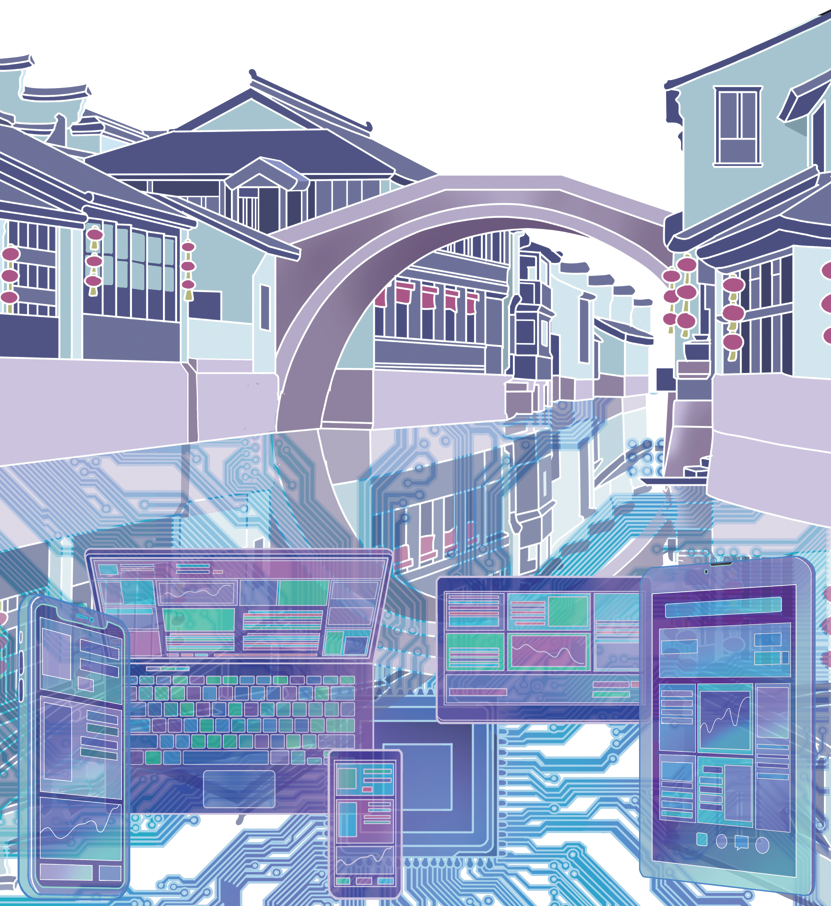Summit urges joint efforts in shared digital future


Heightened efforts should be made to foster a vibrant and dynamic digital economy through technological innovation, and strengthen exchanges and dialogue to advance the building of a secure and stable cyberspace to benefit people the world round, said officials, experts and company executives.
They made the remarks at the 2025 World Internet Conference Wuzhen Summit, which kicked off on Fridayin Wuzhen, Zhejiang province, with the theme: "Forging an Open, Cooperative, Secure and Inclusive Future of Digital Intelligence — Jointly Build a Community with a Shared Future in Cyberspace".
Addressing the event's opening ceremony, Li Shulei, a member of the Political Bureau of the Communist Party of China Central Committee and head of the Publicity Department of the CPC Central Committee, highlighted the significance of upholding inclusive development, accelerating the construction of digital information infrastructure, and promoting the widespread adoption of digital technologies and applications.
Li called for enhancing national digital literacy, bridging the digital and intelligence divide, and enabling people worldwide to share the benefits of digital development.
He also stressed the need to give full play to the role of an internet that transcends borders and connects the world, build communication platforms, expand channels for dialogue, and promote cultural exchanges across multiple levels and fields.
Wang Hao, Party secretary of Zhejiang, said the province has accelerated steps to bolster the integration of the digital economy and the real economy and nurture new quality productive forces. Wang said the province's digital economy accounted for over 50 percent of its GDP in 2024.
This year, China entered the top 10 on the Global Innovation Index (GII) for the first time, and the achievement is supported by a digital economy that contributes around 10 percent of GDP in China, said Daren Tang, director general of the World Intellectual Property Organization.
"Today's conference will give us the opportunity for global dialogue and collaboration, which have continued and will have to continue being the foundations of an internet that connects people and ideas, spreads opportunity, and powers new forms of innovation and creativity," Tang said.
As a new wave of technological revolution and industrial transformation is rapidly evolving, artificial intelligence is spearheading the development of the digital economy and is being integrated into every facet of industrial revolution and people's lives.
Wu Yongming, CEO of Chinese tech heavyweight Alibaba Group, said the company is increasing investment in AI infrastructure and remains committed to open sourcing its large language models, empowering developers worldwide to build transformative AI applications.
Wu emphasized that technological inclusiveness is a new opportunity in the era of AI, adding that it is important to address the needs of vulnerable groups and leverage digital technologies to bridge the digital divide.
Liu Qiangdong, Chinese e-commerce giant JD's founder and chairman, said with the appearance of AI and robotics, the proportion of China's social logistics costs in GDP is expected to drop from over 14 percent to less than 10 percent within the next five years.
Liu said robots will liberate human beings from repetitive and heavy work, and technological advancements will create a large number of new types of jobs, new demand and new services.
- Senior Xi'an official facing probe by China's anti-corruption watchdogs
- Philippines risks creating trouble for itself: China's defense ministry
- Newborn with congenital heart disease receives life-saving surgery in Yunnan
- Hong Kong charity signs diplomatic talent deal with Beijing university
- Aircraft carrier Fujian, commissioned
- Erdos offers 10,000 yuan subsidy for families having third child



































